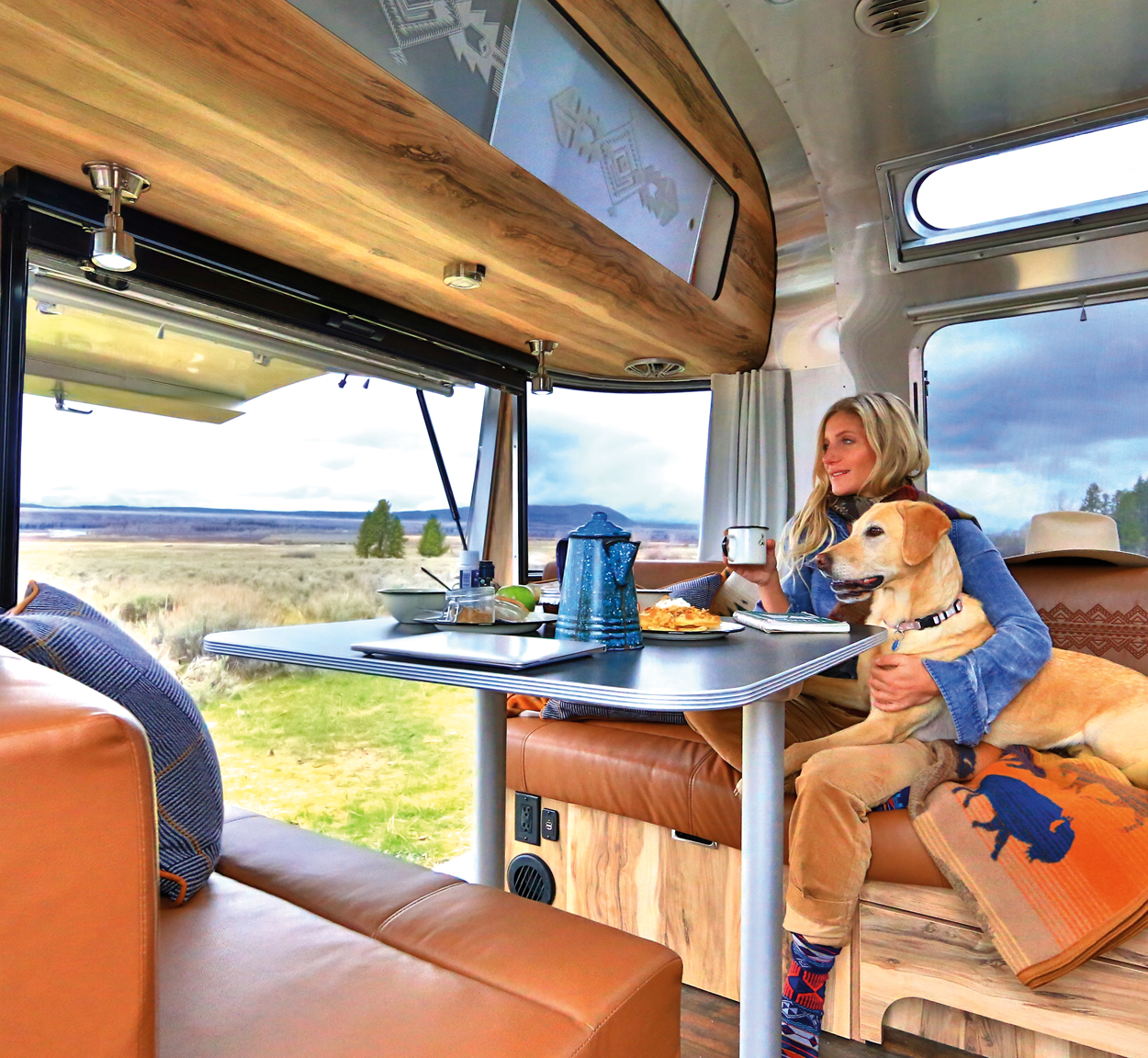The downpours presented a threat in the eyes of the Kenyan Department of the Interior, as the nation’s roads had, at best, hard washboard surfaces and, at worst, silty and dusty fine dirt. These roads, built by Allied Forces during World War II, had fallen into extreme disrepair after two decades.
Any attempt by our caravan of Airstream travel trailers to make it through the conditions could cause severe damage to the graded roads. After hard negotiations, clearance was given.
The Caravan made it through the Northern Frontier District, shaking along uneven roads and persevering through blinding dust clouds, covering vehicles unlike anything we’d ever seen.
The rains we missed in Kenya hit us hard just a few miles into Ethiopia, requiring a bucket brigade moving earth down a long chain of men, women, and children filling in a quagmire.
We spent several days getting the vehicles and Airstreams through the mud, hitting hills with badly eroded roads. Picture two fissures in a road, with barely enough surface to drive over without tumbling into a deep crevice.
More time lost. Winching, pulling, tugging, towing, and hoping stuck vehicles will come free.
As time went on, our Caravan delayed, world news agencies began writing about the “Lost Caravan.” But we weren’t lost, we knew exactly where we were!
On November 26, the AP issued a news release, picked up worldwide. It appeared in newspapers the next day. In Los Angeles, the Los Angeles Times and Examiner, the Angel City's two major newspapers, ran distinctly different headlines. Same story, different editorial spin.
Safari Not So Good: Africa Trailer Group Limps Into Ethiopia
and
U.S. Caravan Reaches Addis Adaba
Very different, yes?
I love the AP report. A few quotes:
“Smelling of the bush, covered with red dust and with sores on their hands, Wally Byam’s ‘lost tribe’ of 90 Americans groaned into Addis Adaba today, 20 days after leaving Nairobi, Kenya.”
We traveled a distance just under 1,000 miles. Today, that trip would take only 24 hours. Easily manageable within a few days.
More quotes:
“The corns, Wally explained, came from building their own roads in many parts of southern Ethiopia.”
“We are thinking of presenting a bill to the Ethiopian government for improving their roads, quipped one sore-handed Caravanner.”
“Broken axles and springs and burst tires slowed the caravan to as little as seven miles per day.”
Related posts:
Dale “Pee Wee” Schwamborn has silver in his blood. Each week, Pee Wee shares one of his many stories, including his experiences on the iconic Airstream Caravans, his time spent working in the Airstream factory, and the many Airstreamers he’s befriended, far and wide.








